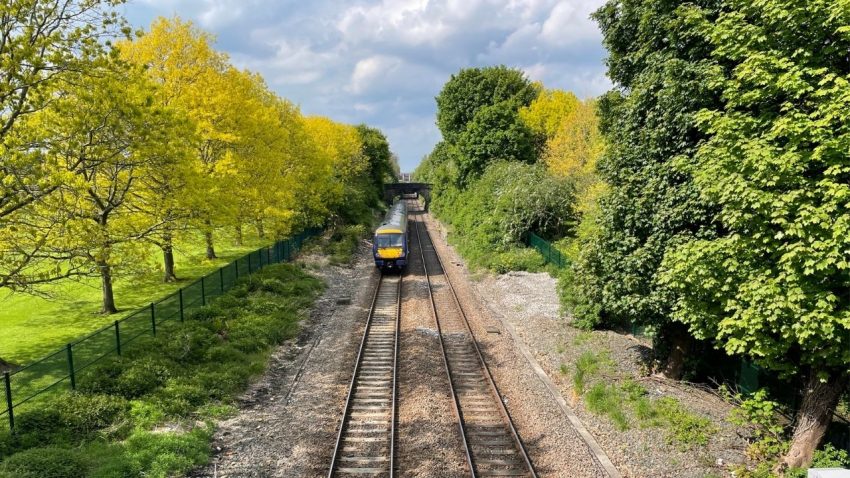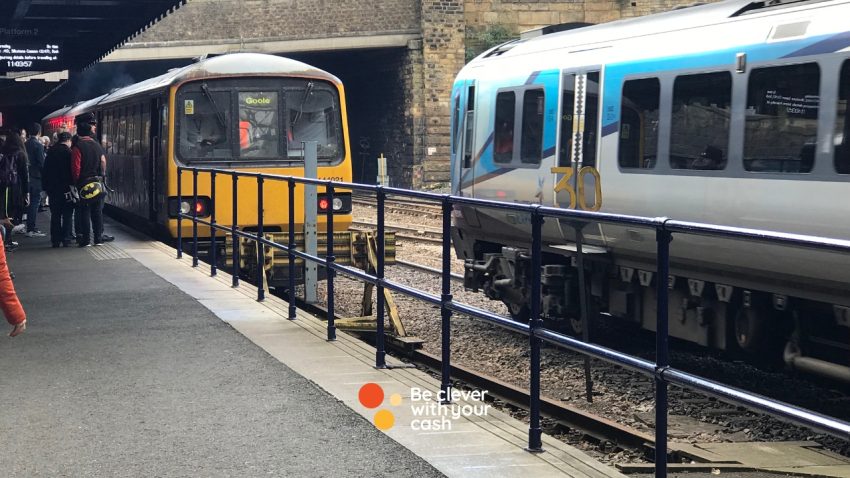Ticket splitting, where you buy individual tickets for parts of the journey rather than just one return, is hyped as a top way to save on trains.
For years this has been a slightly hidden trick, requiring guesswork on your part or using a small website to work out where to break a ticket. But now booking giant Trainline has got in on the act, and Virgin Rail will launch a booking service doing the same later this year. This trick could be about to go mainstream. So just how likely are you to actually find a fare this way?
First up, it absolutely can work – you might have seen the stories online of people managing to massively cut their train fares by doing it. My favourite was one a few years ago where a guy saved a ton of cash but had 28 separate tickets for his journey.
But in my experience, it’s rare that a journey comes up costing less with this method. In fact, I’m not sure I’ve ever actually cut the cost of my own journeys through splitting, at least not that I can remember.
It could just be because the routes I take aren’t long enough, or perhaps it’s the times I travel. As a method of saving cash it seems only marginally more reliable than a Thameslink or Northern train service.
So if you do manage to nail down a split fare then it can make a big difference. Just don’t expect to do it for every journey. To help you I’ve taken a look when there’s potential to save, and when it’s less likely to happen.
What is split ticketing?
Very simply you buy a series of tickets rather than just one for your journey. So a train from London to Newcastle could be cheaper if you get a ticket from London to Doncaster, change train, and then get another ticket from Doncaster to Newcastle. With some journeys, you can even stay on the same train. Maybe even in the same seat!
When split tickets are more likely
Yep, it’s weird and there’s no obvious logic behind when you can get split fares and when you can’t. However there are factors which could help you find one of these cheaper fares.
When part of your journey is peak and part is off-peak
Peak trains are almost always more expensive, but if you are able to split the journey so you’ve got a different ticket once rush hour finishes it could save cash.
When you’re going a long way
Again, you’ve more opportunities for change if you’re going through more stations, and that could bring up a few splits.
When you’re using different train providers
If you change trains part way and the second train is operated by a different train company then it’s definitely worth seeing if splitting the fare works. Look out too for promotions exclusive to one route. Though not strictly a split fare, I recently got 10p returns to Leeds from Manchester in a flash sale, but I’m paying the normal return price to Leeds from where I live.
When you’re buying last minute
The more expensive the total fare, the better your chance of finding some cheaper options through splitting. Of course, it’s better and cheaper to book in advance, but we’ve all had times we can’t plan ahead.
When you’re looking at single journeys
I’d always check for splits on a single journey rather than a return as it gives you the flexibility to find different splits each way. Of course, compare this to the price of a standard return.
When you’re willing to make a few changes
It won’t necessarily be the quickest route, but if you split up your journey along a less direct route then there could be more opportunities to split.
When split tickets are less likely
This seems to be my experience. Sadly, there are lots of journeys where you won’t find any split savings. Obviously the opposite of the above reduces your chances of savings, and I think it’s incredibly unlikely for short trips, and ones with few stops on the way.
How to find a split ticket
You’ll probably need to get online, though that’s not to say station staff won’t know a few savings – it’s just unlikely.
You can of course work it out yourself by checking the stations on the way and seeing if breaking the journey, whether on the same train or a different one, brings up cheaper tickets.
But the easy way to find the fares is to use a split ticket website. These take your journey and work out the cheapest and quickest split (or splits) possible – if there are any.
- Trainline (app only)
- TrainTickets.com
- SplitTicketing
- TrainSplit
I’ve looked at a few (long) journeys on each of them and had different results, so if you can spare an extra couple of minutes it’s worth doing a couple of searches.
Each of these, including Trainline, charge you extra on top. Some include this in the price you see, others add it on. Trainline, which charges a flat £1.50, works out cheapest if your saving is more than £15. The others all charge 10% of the saving, which could be quite hefty on journeys with large savings.
If you don’t want to pay these extra fees you can buy the tickets through another train booking website. However, if you can afford it you might want to pay to help the smaller services survive, especially if you’ve got a substantial saving.
Risks of split tickets
A problem could occur if you have to make any changes on your journey. With a standard ticket taking you from station A to station C via a change of trains at station B, you’d be able to get on a later service if the first leg is delayed.
But with split tickets covering stations A to B, and then stations B to C, you’d likely have to pay for a new ticket from B to C if you miss the pre-booked train, though you would be able to get a refund on the first train if it’s more than 15 minutes late.
Don’t forget to add in the other tricks to save on train journeys such as railcards and advance fares. More here:






Just a note on the last parts: Provided you observe the MINIMUM CHANGE TIME (specific to each station), split ticket users are afforded the same rights as through tickets and for that example, you can use the B to C ticket on a later train, for free.
See section 19 of the NRCOC: https://www.splitticketing.com/NRCOC.pdf
I have only ever found split tickets to be worth the hassle on the Cornwall & Devon services to the Midlands, North of England & Scotland [v.v.]. In addition if you’re travelling 1st Class but part of your trip has only standard class don’t pay for the whole journey in one ticket which technically isn’t split ticketing although will likely save you a fortune. This may be especially relevant with Greater Anglia trains now 1st Class is being ditched on many routes.
Great thought about First Class there Gregg.
Pahaha the shade Andy “… Thameslink” which is very true. I currently use a mix of split tickets with a 16-25 discount applied and megatrain, once I’ve graduated I’ll hopefully get the Annual Gold card for 34% off
This is correct, you won’t find splits on shorter/commuter type journeys. All we say is give it a go for your journey. But, even if it doesn’t find a split, it’s still cheaper than booking on Trainline for example because there is no booking fee.
Please don’t follow the advice here of using Trainsplit to find splits and then book on train operator sites for example. If you have a lot of splits, you could easily make a mistake and end up with a penalty fare. But Trainsplit only takes 10% of what it saves you and needs this income to improve. If it wasn’t around, train operators wouldn’t started offering splits, would they?